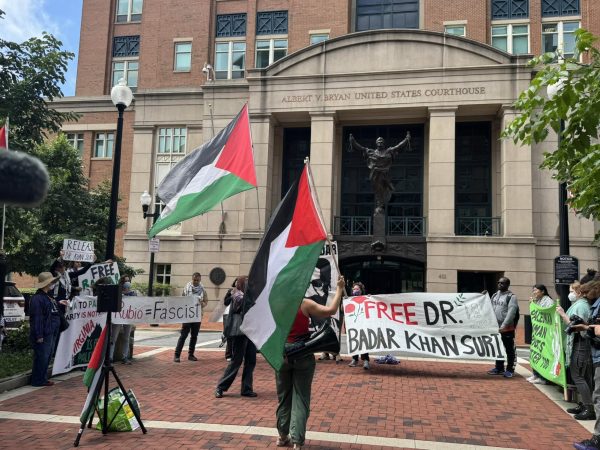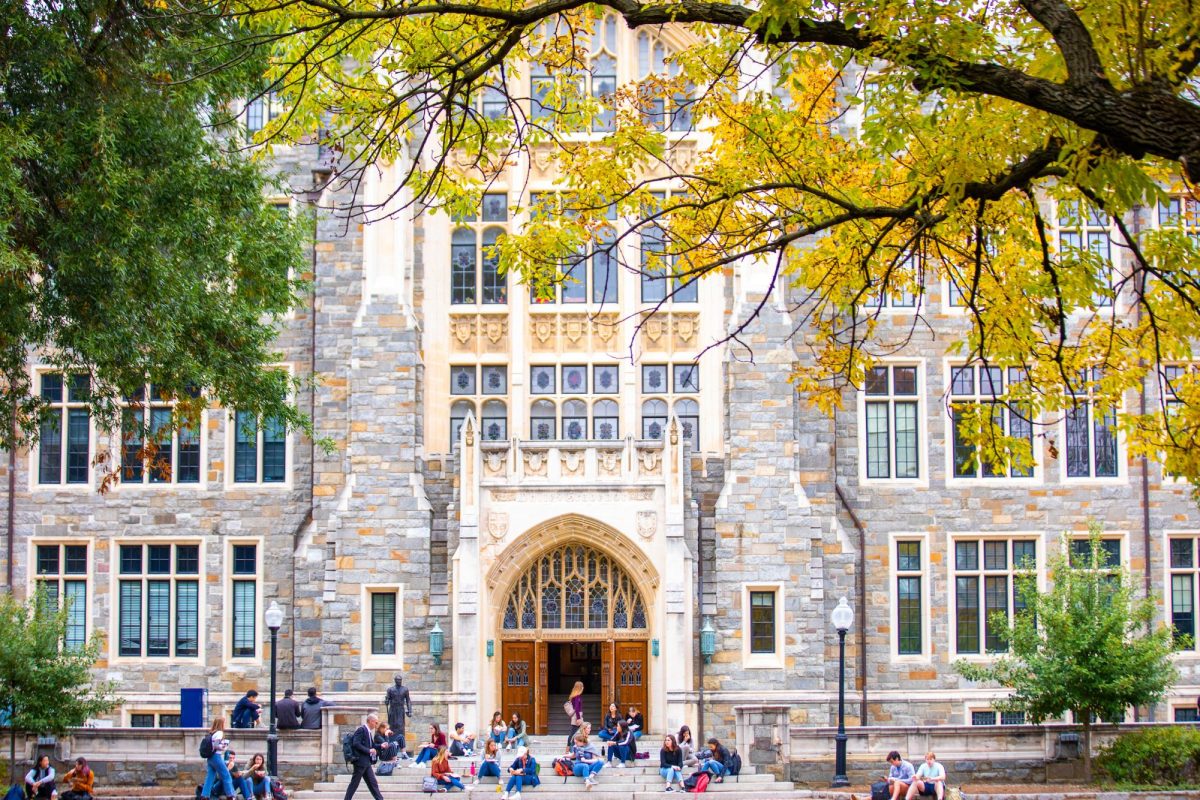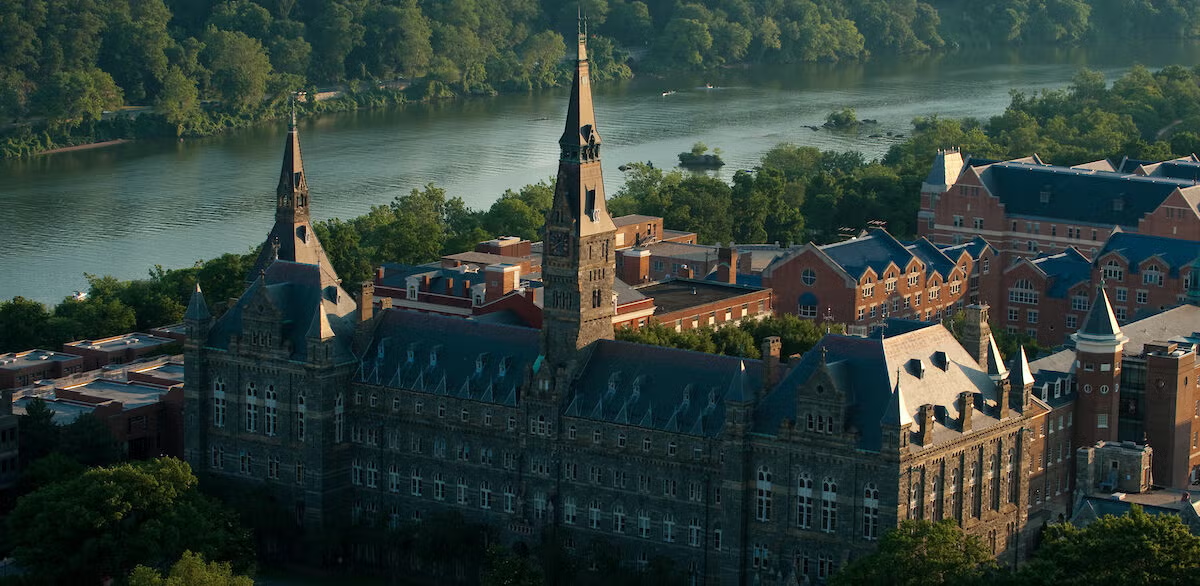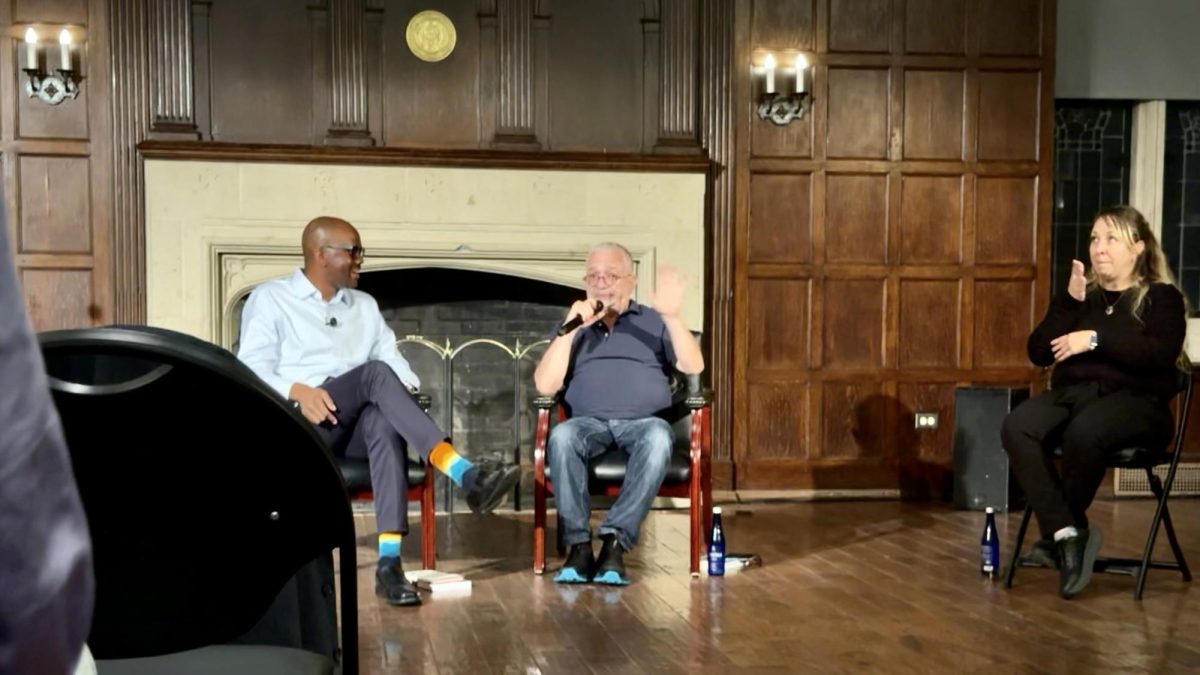Formerly detained Georgetown University postdoctoral fellow Badar Khan Suri and the federal government reached a settlement with the U.S. Department of Homeland Security to reinstate his legal status amid ongoing litigation.
The federal government agreed to reinstate Khan Suri’s J-1 visa, the non-immigrant research visa he held, and the visas of his children, according to Aug. 5 legal filings. President Donald Trump’s administration has not yet addressed whether Khan Suri can remain in the United States; however, reinstating Khan Suri’s legal status will allow him to continue living and working in the United States while litigation continues.
Khan Suri’s continued visa status will enable him to return to teaching at Georgetown while his immigration case is pending. According to GU Experience, an internal platform for students and faculty, Khan Suri will continue to teach his class in the Alwaleed Bin-Talal Center for Muslim-Chrisitan Understanding, a research institute in Georgtown’s School of Foreign Service, titled “Majoritism and Minority rights in Southwest Asia.”

The Trump administration will also reinstate the profiles of Khan Suri and his children on the Student and Exchange Visitor Information System (SEVIS), a program that manages the information of international students and exchange academics to maintain their legal status in the United States.
The legal filings also indicated the government will not again terminate the statuses of Khan Suri and his children unless any further information becomes available indicating an “independent legal ground” to terminate Khan Suri’s status.
The settlement deal came three days before Khan Suri’s lawyers were set to argue against his deportation in a hearing.
Federal immigration officials detained Khan Suri March 17, alleging he was a threat to U.S. foreign policy. U.S. Immigration and Customs Enforcement released Khan Suri May 14 from a detention facility in Avadaro, Texas, following a federal judge’s ruling that his detainment was unconstitutional.
In early July, a federal appeals court affirmed the lower court’s decision, allowing Khan Suri to remain free from federal custody. While the settlement finalizes Khan Suri’s legal status in the United States, the case does not address his ongoing immigration court challenges.
Khan Suri, his lawyers and advocates maintained he had not violated the law nor engaged in protest activity while in the United States. The U.S. Department of State and Department of Homeland Security (DHS) had cited his connection to his father-in-law, a former high-ranking Hamas official, whom Khan Suri only met twice.
DHS did not immediately respond to requests for comment.
A DHS official testified in federal court in July that immigration officials had investigated Khan Suri’s research, teaching and pro-Palestinian advocacy — but not his personal life — when deciding to detain him.
Eden Heilman, one of Khan Suri’s lawyers with the American Civil Liberties Union, a legal nonprofit that provided support to Khan Suri, said Khan Suri looks forward to resuming teaching.
“We are encouraged that the government agreed to restore Dr. Suri and his children’s status and records,” Heilman said in a statement to Politico. “We know Dr. Suri is eager to rejoin the academic community at Georgetown and this will give him the opportunity to do that this fall.”









